2025 Plutarch Award Shortlist Announced
A distinguished panel of judges from the Biographers International Organization (BIO) is proud to announce the five books shortlisted for the 2025 Plutarch Award, the only international literary award for biography judged exclusively by biographers. These five biographies uphold the high standard set by earlier Plutarch winners for the quality of research, the literary merit of the writing, and the originality and significance of the project.
This year’s five shortlisted titles and detailed information are listed below in alphabetical order by author’s name. Information about the longlist titles is available here.
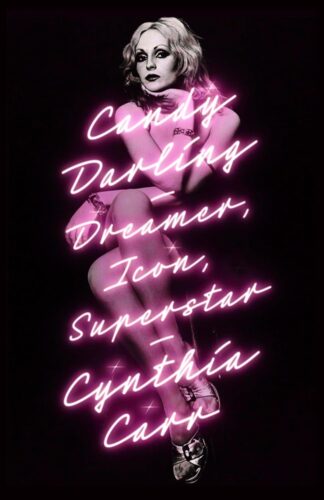 Candy Darling: Dreamer, Icon, Superstar by Cynthia Carr
Candy Darling: Dreamer, Icon, Superstar by Cynthia Carr
“Shaved her legs and then he was a she,” Lou Reed sang in “Walk on the Wild Side,” his song about Candy Darling and other New York City counterculture icons of the 1960s and 1970s. As Carr demonstrates in this haunting and deeply sympathetic portrait, it wasn’t anywhere near that easy. From Candy’s years growing up in Long Island—as a child who “looked like a girl dressed in boy’s clothing,” she was abused by her father as well as her peers—and continuing through her glamorous yet down-and-out twenties, when she was crashing in friends’ spare rooms even as Andy Warhol made her one of his “superstars,” her life was marked by discrimination, poverty, and physical trauma, which culminated in hormone treatments that likely contributed to her tragic death from stomach cancer at age twenty-nine. Working with archival interviews done by a close friend of Candy’s as well as her own detailed research, Carr insists on her subject’s individuality even as Candy comes to represent something larger: the immense bravery of living as a transgender person at a time when it was illegal for men even to wear women’s clothing in public.
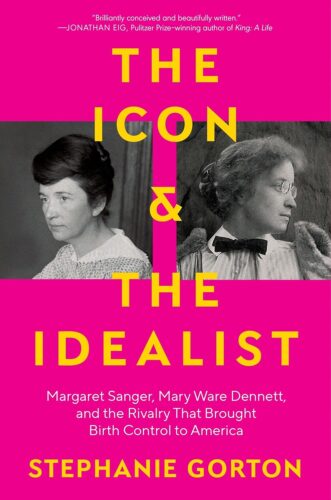 The Icon and the Idealist: Margaret Sanger, Mary Ware Dennett, and the Rivalry That Brought Birth Control to America by Stephanie Gorton
The Icon and the Idealist: Margaret Sanger, Mary Ware Dennett, and the Rivalry That Brought Birth Control to America by Stephanie Gorton
Deeply researched, engagingly written, and with urgent timeliness, The Icon and the Idealist explores the shared goals and contentious rivalry of the two very different women who led the fight for female reproductive freedom in the United States. On the one hand, the icon: radical, attractive, and flamboyant Margaret Sanger, a former New York City slum nurse who founded the nation’s first birth control clinic in Brooklyn and later Planned Parenthood. On the other, the idealist: plain-looking, college-educated Mary Ware Dennett, who, after getting ditched for another woman by her architect husband, left New England for bohemian life in New York City. Initially friends and allies, both Sanger and Dennett believed that a woman’s freedom depended on her ability to control childbearing. They clashed, bitterly, over strategy. Gorton deftly avoids the trap of a right/wrong dichotomy and instead portrays the nuanced, flawed humanity and heroic strengths of each reformer.
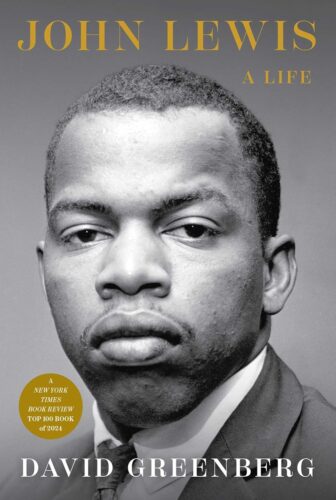 John Lewis: A Life by David Greenberg
John Lewis: A Life by David Greenberg
Greenberg succeeds admirably in breaking through the encrusted story of an icon to reveal the figure beneath the myths. The John Lewis brought to life in this meticulously reported work overcomes not only the brutal racism of the Jim Crow South but his own doubts and vulnerabilities as he moves through the stations of the cross of the 1960s civil rights movement and on to an astonishing second act as the “conscience of Congress” during seventeen terms in Washington. This is a classic, straightforward biography, and the depth of Greenberg’s research shines through, illuminating the importance of John Lewis through hundreds of interviews, archival documents, FBI files, and most of all the empathetic but honest sensibility of the author.
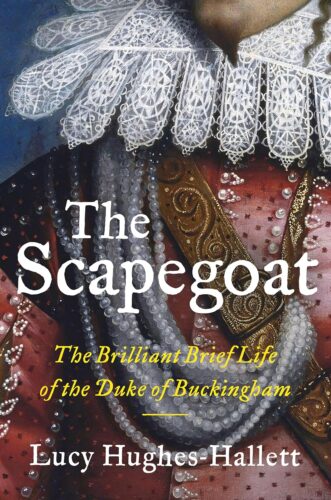 The Scapegoat: The Brilliant Brief Life of the Duke of Buckingham by Lucy Hughes-Hallett
The Scapegoat: The Brilliant Brief Life of the Duke of Buckingham by Lucy Hughes-Hallett
With a novelist’s eye for the extraordinary, Hughes-Hallett conjures an entire bygone world: the masques, dances, art, food, and attitudes towards “effeminacy,” among other curious subjects, of Jacobean era England. At the center of it all is George Villiers, the Duke of Buckingham, who rose from humble beginnings to become the favorite—and lover—of King James I, as well as (in the words of his unreliable detractors) “a devil, a spotted monster, a comet that disrupted the natural order.” Hughes-Hallett sketches Villiers with obvious sympathy, and her portrait is stylish, vivid, and frequently surprising. This biography mixes sexual politics with passages on warfare and Westminster, making for an engagingly modern take on a dramatic period of history.
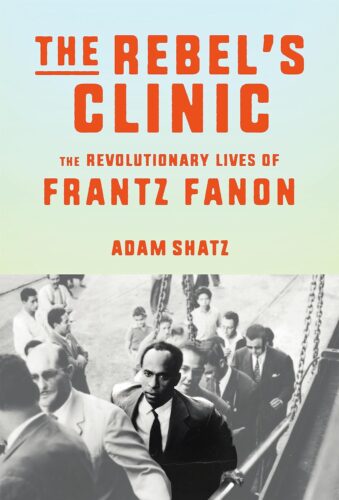 The Rebel’s Clinic: The Revolutionary Lives of Frantz Fanon by Adam Shatz
The Rebel’s Clinic: The Revolutionary Lives of Frantz Fanon by Adam Shatz
Long after the death in 1961 of thirty-six-year-old psychiatrist and revolutionary Frantz Fanon, his theories of decolonization have shaped contemporary revolutions while fascinating and polarizing intellectuals and artists around the world. Biographer Adam Shatz has parlayed his lifelong interest in this “thinker of global significance” into a compelling biography of Fanon’s journey from Martinique to France and finally Algiers—a book that, as Shatz writes, is deeply tuned into the “gaps, silences, tensions, and contradictions” of this “nomad who never stopped looking for a home.”
The winner of the 2025 Plutarch Award for the Best Biographer of 2024 will be announced on Friday, June 6, at the annual BIO Conference in Washington, D.C. Information about the conference can be found here.